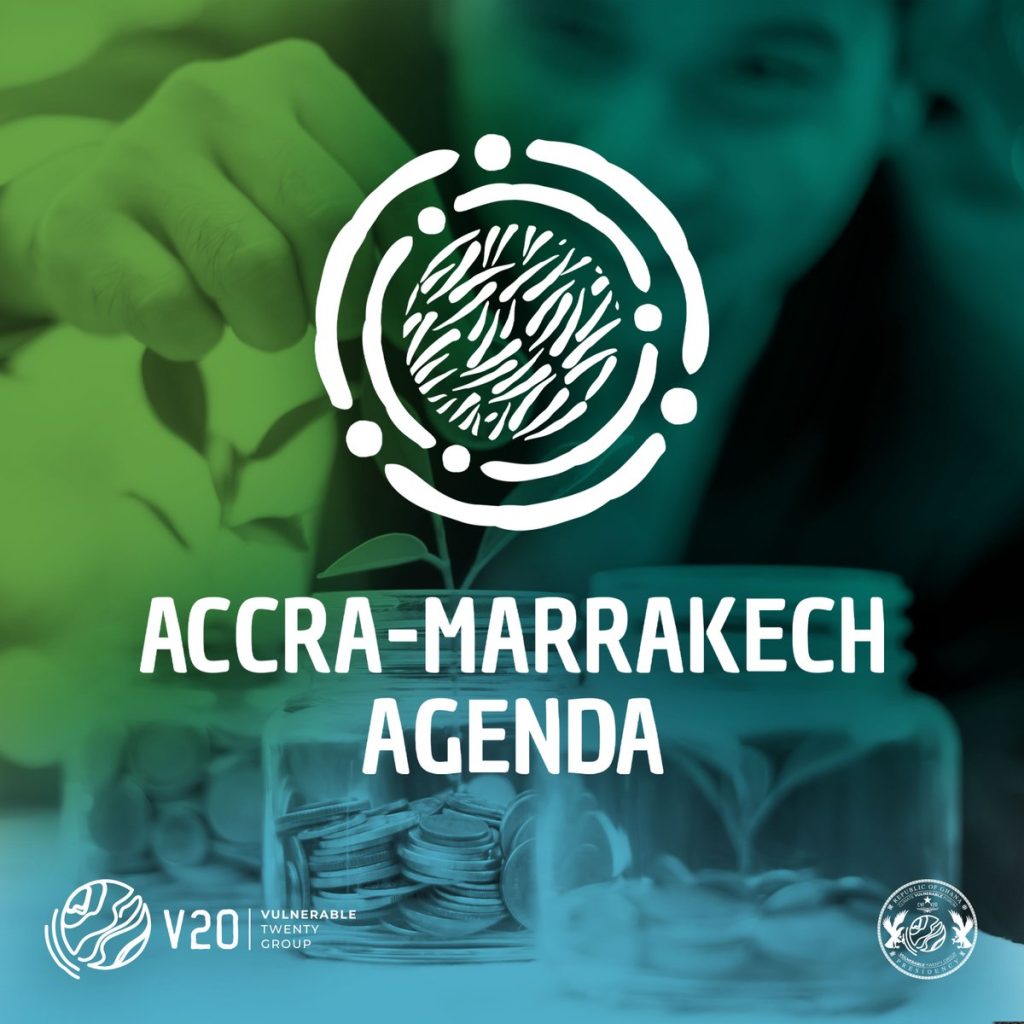By Francis Ntow
Marrakech (Morocco), Oct. 15, GNA – Ghana is passionate to be a global beacon of advocacy for climate mitigation and adaptation for a liveable planet, climate prosperity, and debt sustainability.
This comes as the country prepares to host the global Secretariat of the governments of the Climate Vulnerable Forum (CVF) and the Vulnerable Twenty Group of Finance Ministers (V20).
“Having the main advocacy for climate change adaptation and mitigation coming from our country, joining the African Continental Free Trade Area (AfCFTA), will have an incredible benefit going forward,” Mr Ken Ofori-Atta, Finance Minister, said, signalling that Ghana is beginning to build an international centre for climate mitigation and adaptation.
He was speaking with journalists on the sidelines of the 2023 International Monetary Fund (IMF)/World Bank Group (WBG) Annual Meetings in Marrakech on Friday evening.
“V20 headquarters will be a phenomenal addition to Ghana. This is an organisation that currently has 68 countries, representing about 1.7 billion people, so, we’re pleased about the development,” he said.

Meanwhile, a meeting has been scheduled by the Group on Sunday, October 15, 2023, to discuss sustainable ways to gather resources “to make sure that if we strand our assets, there are alternative ways for growth,” Mr Ofori-Atta said.
Already, the IMF has called on the international community to scale up climate financing to ensure that important efforts to tackle climate change do not crowd out basic needs, like health and education.
Ghana is seeking to strengthen policies to adapt to and mitigate climate change through investment in resilient public infrastructure, particularly, in agriculture, urban development, and coastal protection.
The country is expected to soon set up a Climate Division at the Finance Ministry to tap into financial resources being dedicated by multilateral development finance institutions and climate investors across the world.
That formed part of structural reforms to support inclusive growth through the Post-COVID-19 Programme of Economic Growth (PC-PEG)-US$3 billion loan-support with the IMF.
Such move is expected to mitigate the effects of climate stressors and enhance Ghana’s resilience to climate change, while contributing to global efforts to addressing the challenges of climate change, and its impact on the environment, businesses, and human lives.
Ghana’s forest cover has been depleted by deforestation, illegal logging, and unsustainable land-use practices, which had reduced the eight million tropical forest in 1900 to the current 2.7m.
The government has, therefore, instituted a Green Ghana Day, where on annual basis, various tree species are planted across the country, to help restore the lost forest cover and make the environment conducive for both people and other living things.
GNA